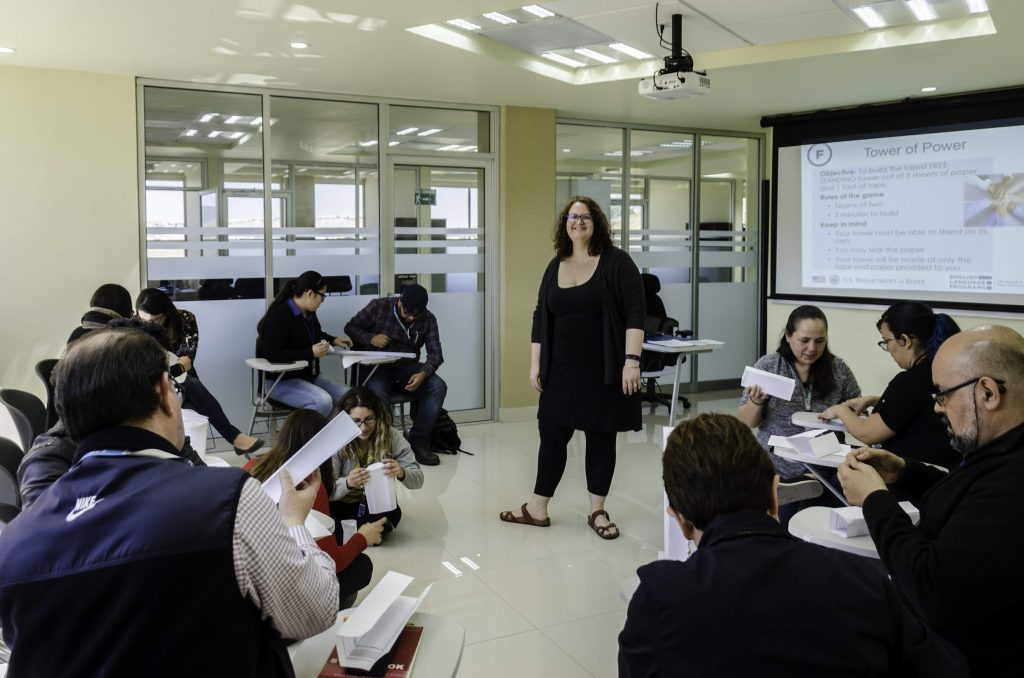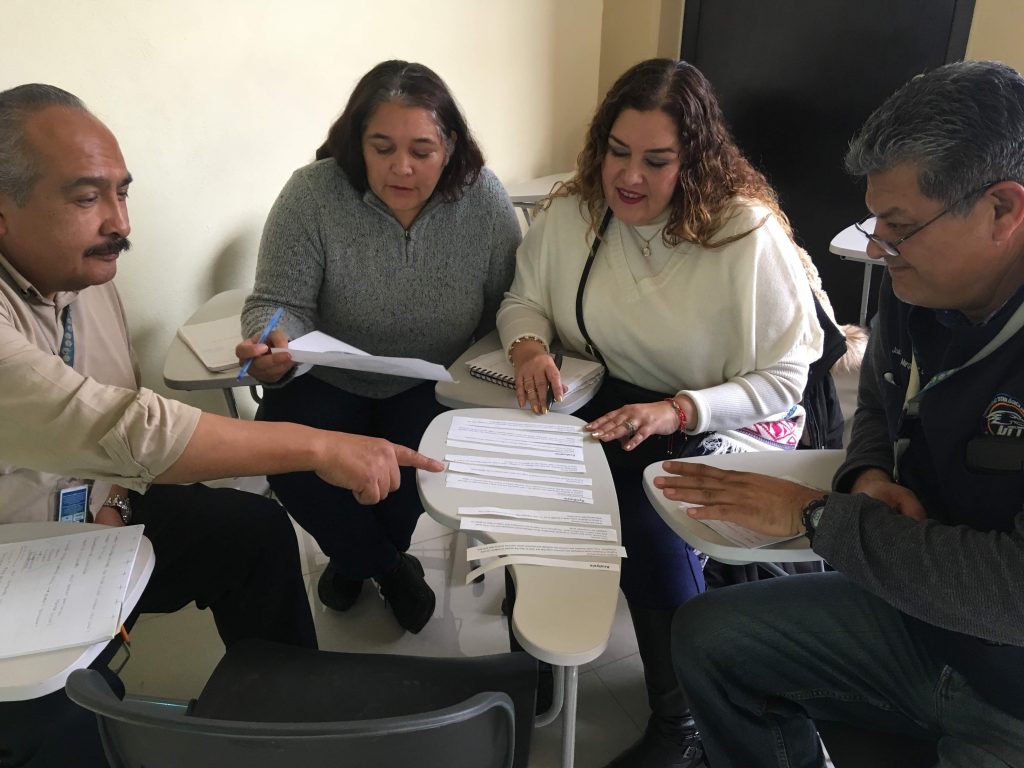The English Teacher’s Role in EMI
When I applied to be an English Language Fellow, I thought I would be teaching English students or training language teachers. However, due to the explosion of bilingual education in Mexico, I’ve spent the majority of my time doing something I never thought I would do – training university science, technology, engineering and mathematics (STEM) professors.
I became an English Language Fellow in June 2018 and was placed at a small technological university on the outskirts of Tijuana, Mexico. These small public universities in Mexico typically offer two and four-year programs to a majority of students who are typically the first in their families to attend a university. Many of the students at Universidad Tecnologico de Tijuana (UTT) are studying STEM and after graduation, will work for international companies that manufacture things like cars and electronics in Tijuana. UTT has recently become a BIS (bilingual, international, sustainable) school which means that for certain majors, students take a foundation English course their first quarter, for several hours a day, and then take content and English language courses for several semesters gradually moving to all content courses being taught in English.
My job as an English Language Fellow was to help content instructors (such as accounting, engineering, and math teachers) with the transition from teaching their courses in Spanish to English. Most had never taught in English before and some did not have the language skills to do so. Faced with this enormous task, I had to figure out how I could best support these teachers. This led me to learn about English as a Medium of Instruction (EMI).
EMI is a relatively new concept that is growing in Latin America. Unlike CLIL which is content and [any target] language being taught together, EMI means teaching content courses in English to students who already have a high enough level in the language to deal with the content being taught, or at least that is the assumption. In my experience, that isn’t always the case. EMI is attractive to both universities and students for reasons related to globalization, internationalization, future job prospects, and so on and I think it can be done successfully if both universities and students are aware that students (and teachers) need to be proficient in English before embarking on these courses. There should also be academic English support for students outside of their classes as well as support for teachers who are teaching in their L2 (or L3, L4, etc.).
When I began my fellowship at UTT, I used a needs analysis to better help me understand how to support the instructors who were teaching in English or would be expected to do so shortly. I gathered information from content instructors through anonymous online questionnaires, post-workshop surveys, and informal conversations with content teachers, English teachers, and students. In my context, I found that teachers would benefit from 1) academic English for teaching purposes, 2) a brief introduction to SLA and 3) pedagogical skills.

I began giving bi-weekly workshops that teachers could voluntarily sign up for. The workshops were practical in nature and meant to give teachers ideas that they could immediately implement in their courses. Some popular workshops were 1) Jigsaw Activities for the Classroom, 2) Collaborative Higher-Order Thinking Skill Activities, 3) Giving Good Instructions, and 4) Introduction to Scaffolding.

Along with workshops, I observed EMI classes where I happily saw several teachers implementing strategies they’d learned in the workshops. Before the observations, I asked them to choose a time for me to observe their class and send me a short lesson plan from a lesson plan template I gave them. This way the teachers were prepared for me to visit their classes, and with the extra step of creating a lesson plan, they would have a well-thought-out and more successful class.
After my observations, I typically gave feedback using the hamburger approach (compliment, something to work on, compliment) and kept my criticism to one detail per observation. I would also email the instructors’ directors with feedback after the instructor and I talked one-on-one. I only gave positive feedback to the directors. I thought this would make teachers more willing for me to observe their classrooms since it’s not regularly done at the institution. The teachers all responded well to the feedback (and especially to my glowing emails to their directors). As an English Language Fellow, I was working with the university, not for the university, so I didn’t feel like it was my role to criticize the teachers to their directors, and besides, most teachers I observed did well.
In the end, I’d like to think that my work at UTT helped the instructors gain more confidence to teach using EMI. The fact that teachers used their free time to come to workshops showed me that they felt I had to offer something of value. I also learned a lot in the process and in order to make my fellowship experience sustainable, I have begun creating a free online EMI training course for instructors in Mexico along with another English Language Fellow in the region, Erica Ellis. This course will hopefully be up and running in the next few months.
Being a Fellow has expanded my knowledge of teaching, teacher training, professional development and has allowed me to grow as a professional. Without leaving a job I enjoyed at Universidad de los Andes in Bogotá, Colombia, I would have never gained the experience (both professional and cultural) and skills I have today.
You can read more about my fellowship here and my thoughts on how to become an English Language Fellow on a blog post I wrote here.

Author’s Biography: Katrina Schmidt graduated from the New School’s MA TESOL program in 2012 and has been an English language teacher for over ten years in New Orleans, Louisiana, Colombia, and Mexico. She is interested in social justice, professional development for teachers, CALL, and academic writing.